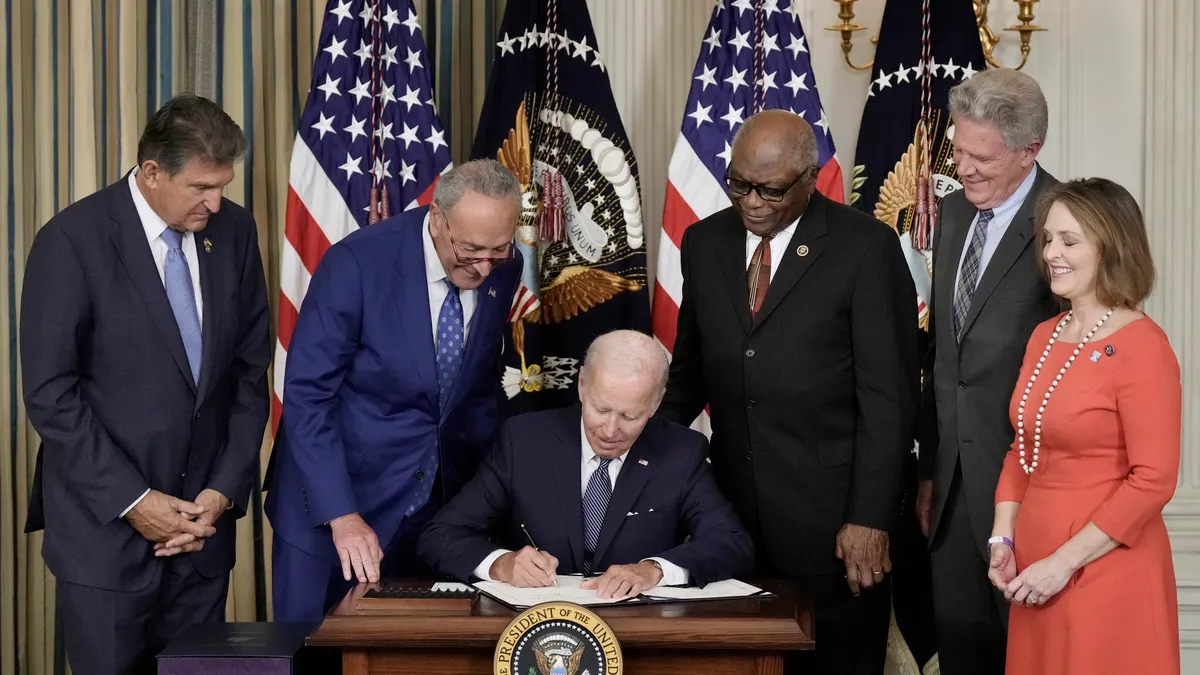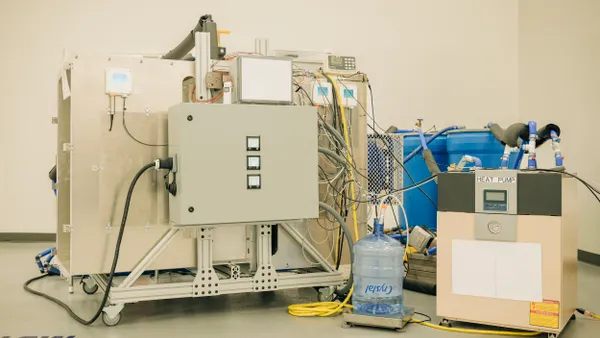Cities must seize this moment of federal support to advance local climate action in 2023, several U.S. mayors emphasized Wednesday.
Speaking at a press call and membership meeting for Climate Mayors — a network of about 500 mayors dedicated to local climate leadership as well as federal and global advocacy on climate issues — the group’s incoming chair highlighted “unprecedented investments in climate action” from sources like the bipartisan infrastructure law and the Inflation Reduction Act.
“We have an administration that is committed to climate action and that is committed to cities and to mayors. And we need to take advantage of that,” said the incoming chair, Madison, Wisconsin, Mayor Satya Rhodes-Conway.
“Cities have long been leaders in actually taking action on climate on the ground,” and the goal now is to work together “to make sure that these unprecedented investments benefit cities and their residents,” Rhodes-Conway said. She added that sharing information and best practices between cities will also continue to be critical. “What we do best often is steal ideas from each other, and we need to make that more and more possible.”
Both the infrastructure law and the Inflation Reduction Act were enacted during outgoing Houston Mayor Sylvester Turner’s term as chair of Climate Mayors. Turner characterized the Biden administration as “a friend in the White House” and touted the impact of federal support.
After the Trump administration decided to remove the U.S. from the Paris Agreement, Climate Mayors gave mayors and cities — whether large or small, liberal or conservative — a platform to convey to the world their remaining commitment to the accord, Turner said. Today, the focus is on working to “mitigate the impacts of climate events on our residents, and to adapt our infrastructure to make our cities more sustainable, more resilient, and yes, more equitable,” he said.
Phoenix Mayor Kate Gallego, who is retaining her status as a vice chair, said that “so much of the action in the next two years will happen at the municipal level, and it will really be up to cities to lead the way on climate change.” With the IIJA and the IRA, “now we have to implement those effectively, and we may need to do some work to articulate why they are important and to protect the funding in both of those pieces of legislation,” Gallego said.
Cleveland Mayor Justin Bibb, a new vice chair, called out the importance of communicating climate justice advancements to the public. “We must do a better job of translating what we're doing and how these issues affect the everyday lived experiences of our residents,” he said. “There is so much work to do to make sure that we break down these issues” and make the connections between climate change and air quality, for example, he said.











